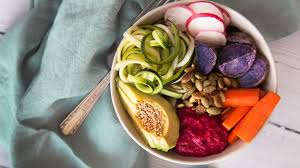
Like many religions, Buddhism has dietary restrictions and food traditions.
Buddhists — those who practice Buddhism — follow the teachings of the Buddha or “awakened one” and adhere to specific diet laws.
Whether you’re new to Buddhism or want to practice only certain aspects of the religion, you may wonder what those dietary customs entail.
One of the ethical teachings of Buddhism prohibits taking the life of any person or animal. Many Buddhists interpret this to mean that you should not consume animals, as doing so would require killing.
Buddhists with this interpretation usually follow a lacto-vegetarian diet. This means they consume dairy products but exclude eggs, poultry, fish, and meat from their diet.
I – Word Understanding
Adhere – to believe and follow
Lacto-vegetarian diet – a diet that excludes meat, poultry, seafoods and eggs but includes certain dairy products like milk, yoghurt and cheese
II – Have Your Say
1. Do you consider vegetarianism healthy? What do you consider an ideal healthy diet?
2. What are the influences of Buddhism on Japanese culture?
a. Life events
b. Holidays
c. Art / Architecture
d. Way of life (minimalism, meditation, etc)
3. What are the most known facts about the life of Buddhists in Japan?
4. When was the last time you visited a Buddhist temple?

